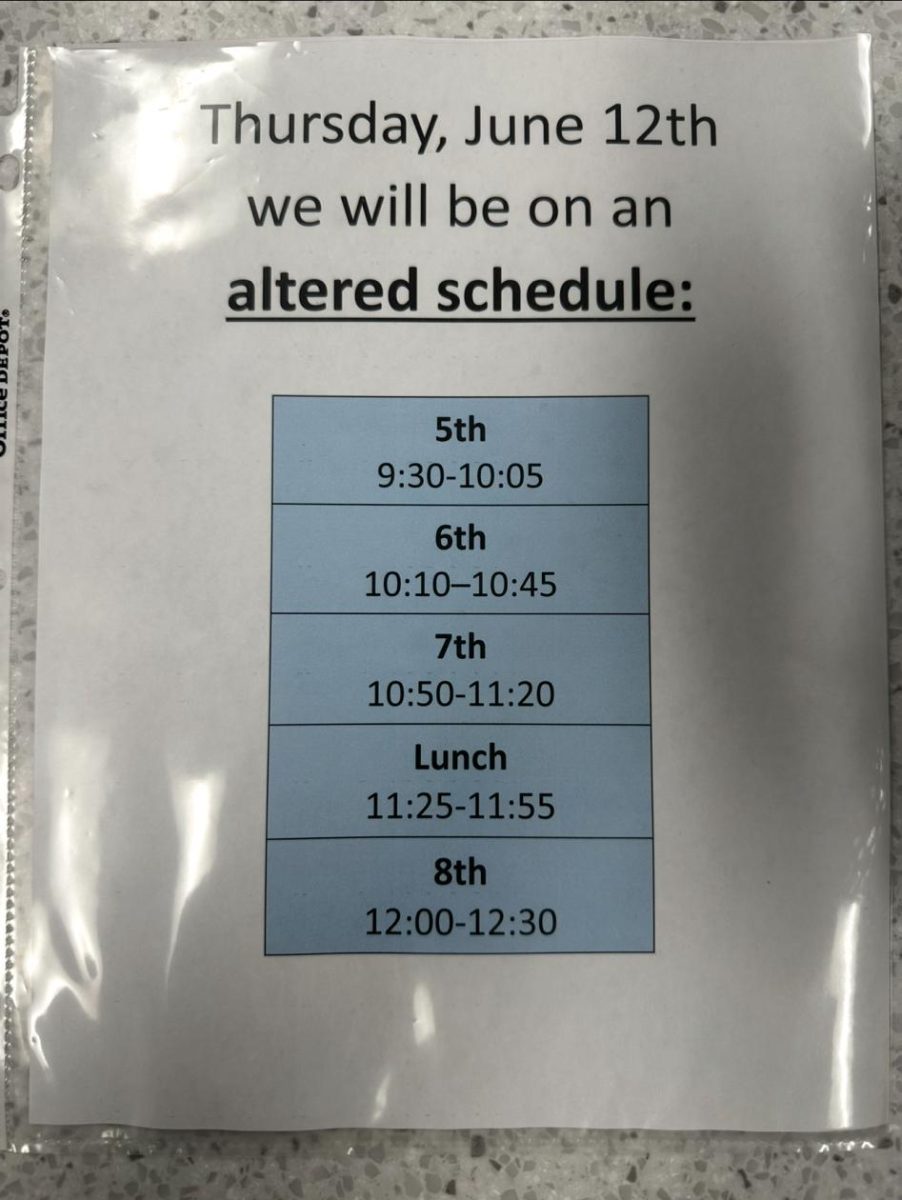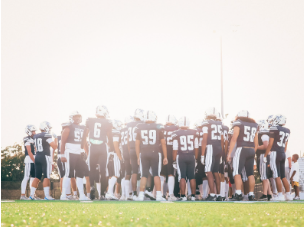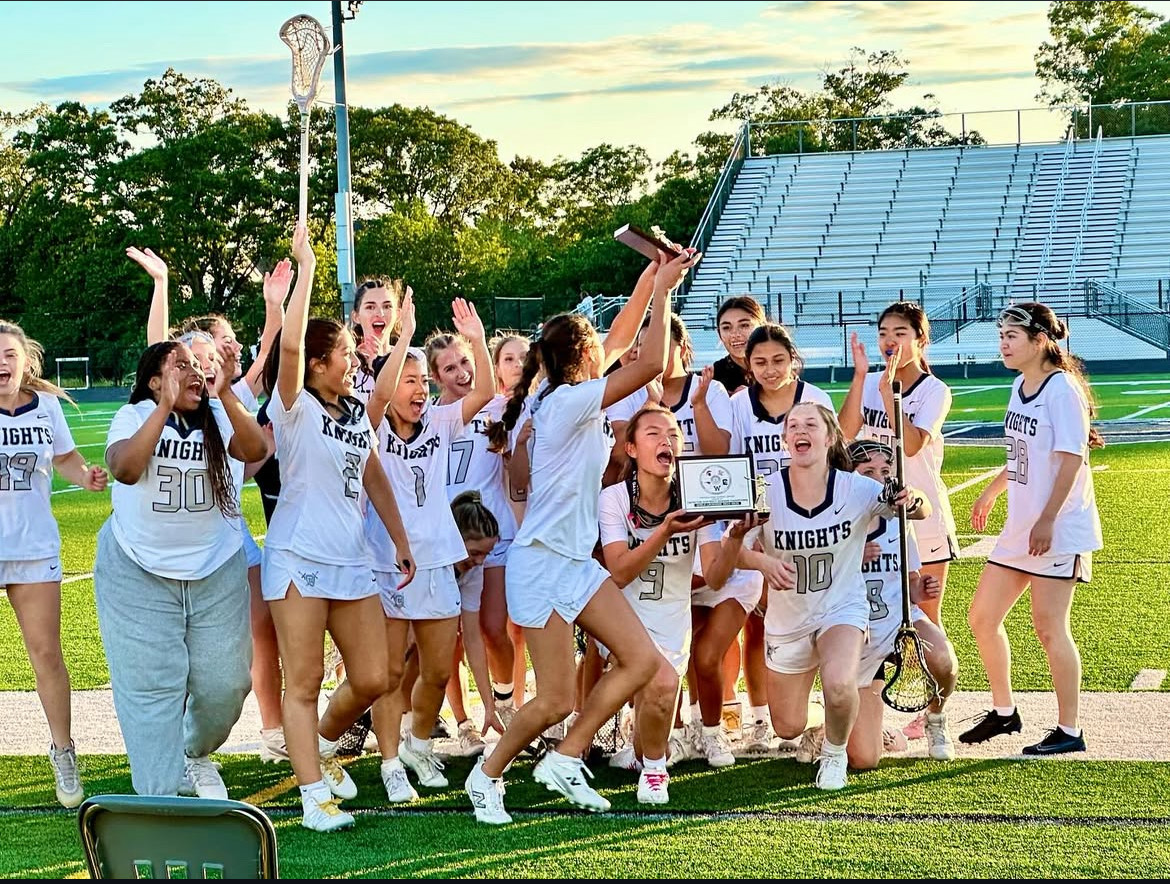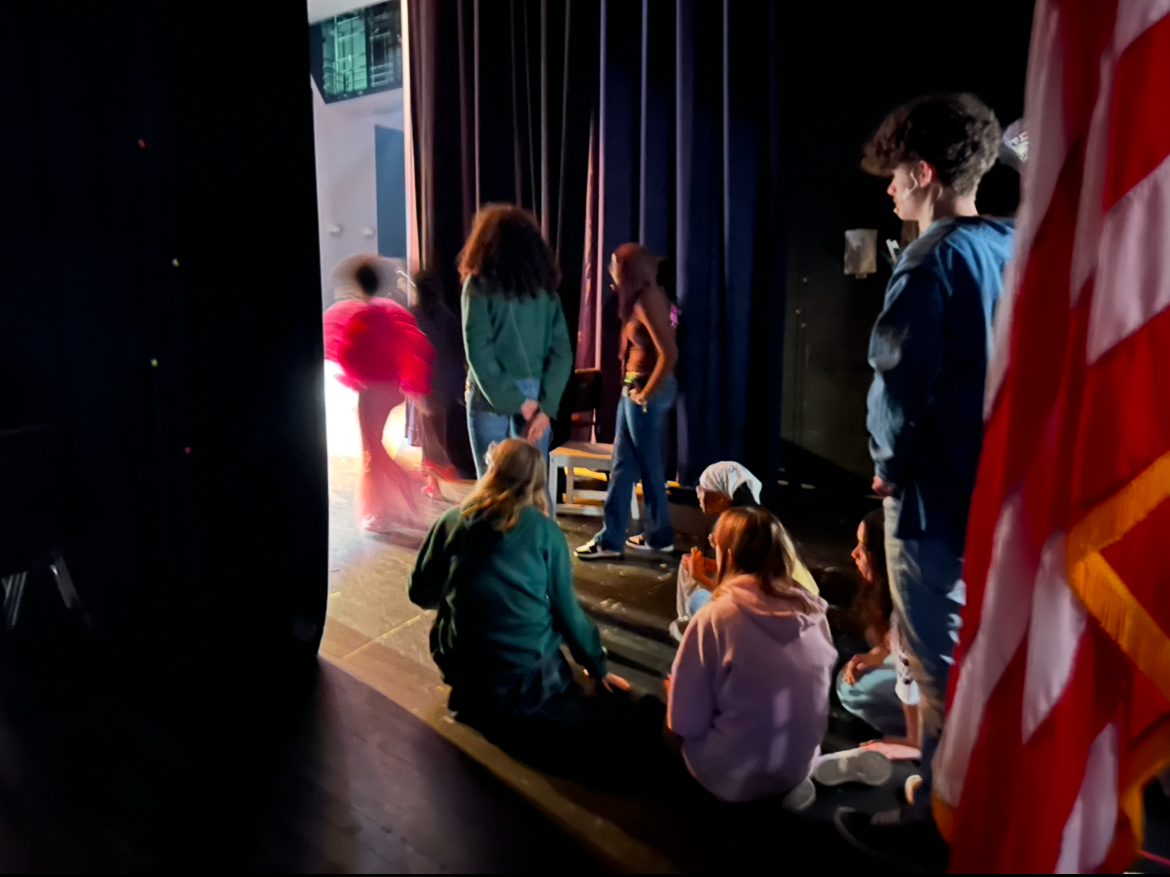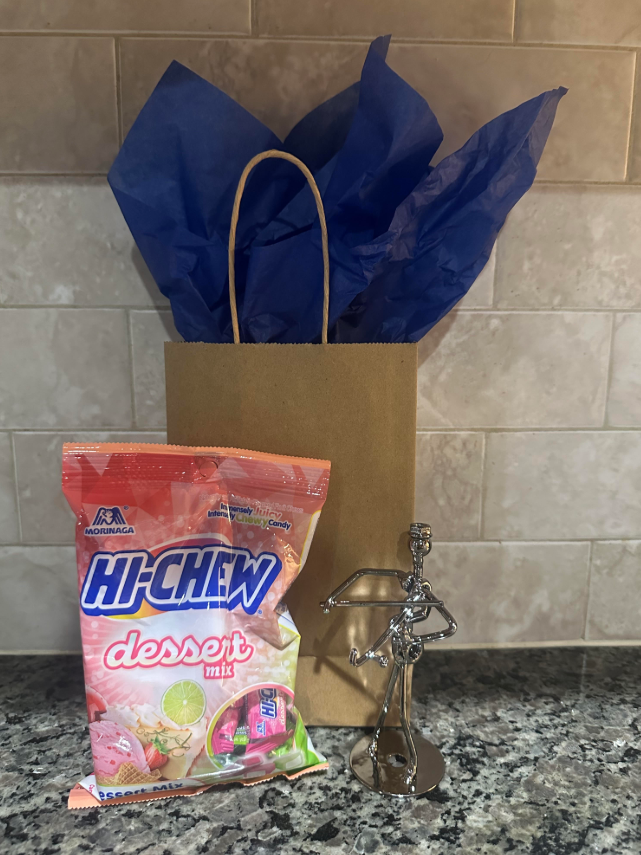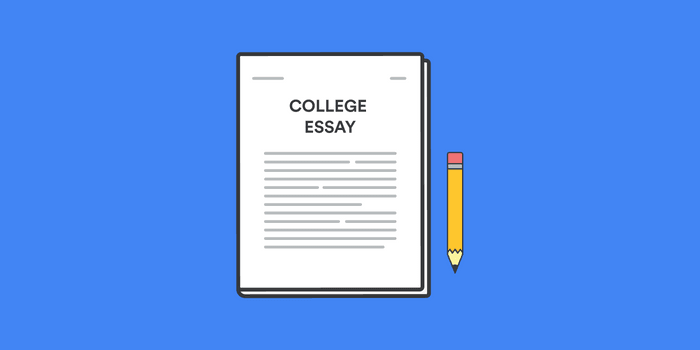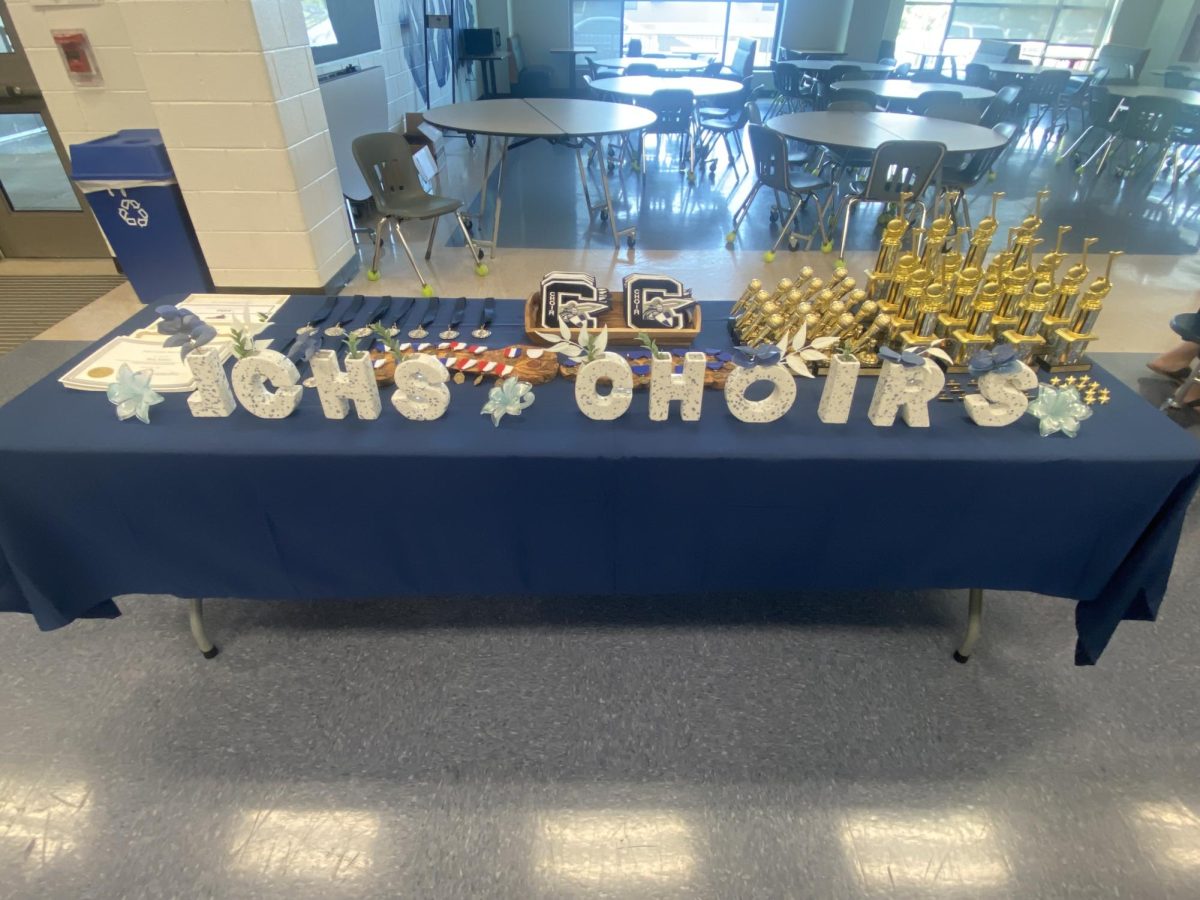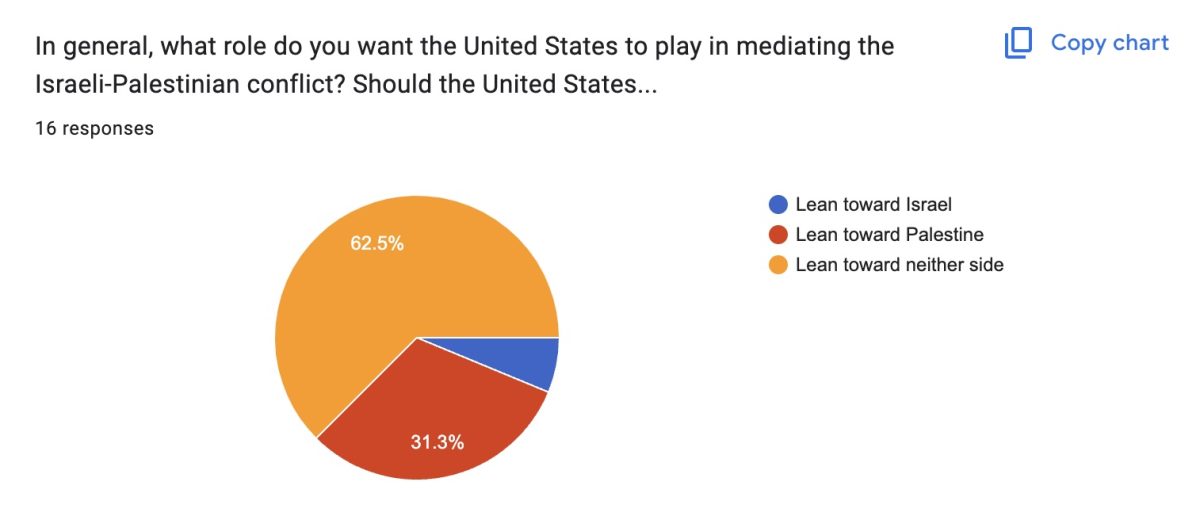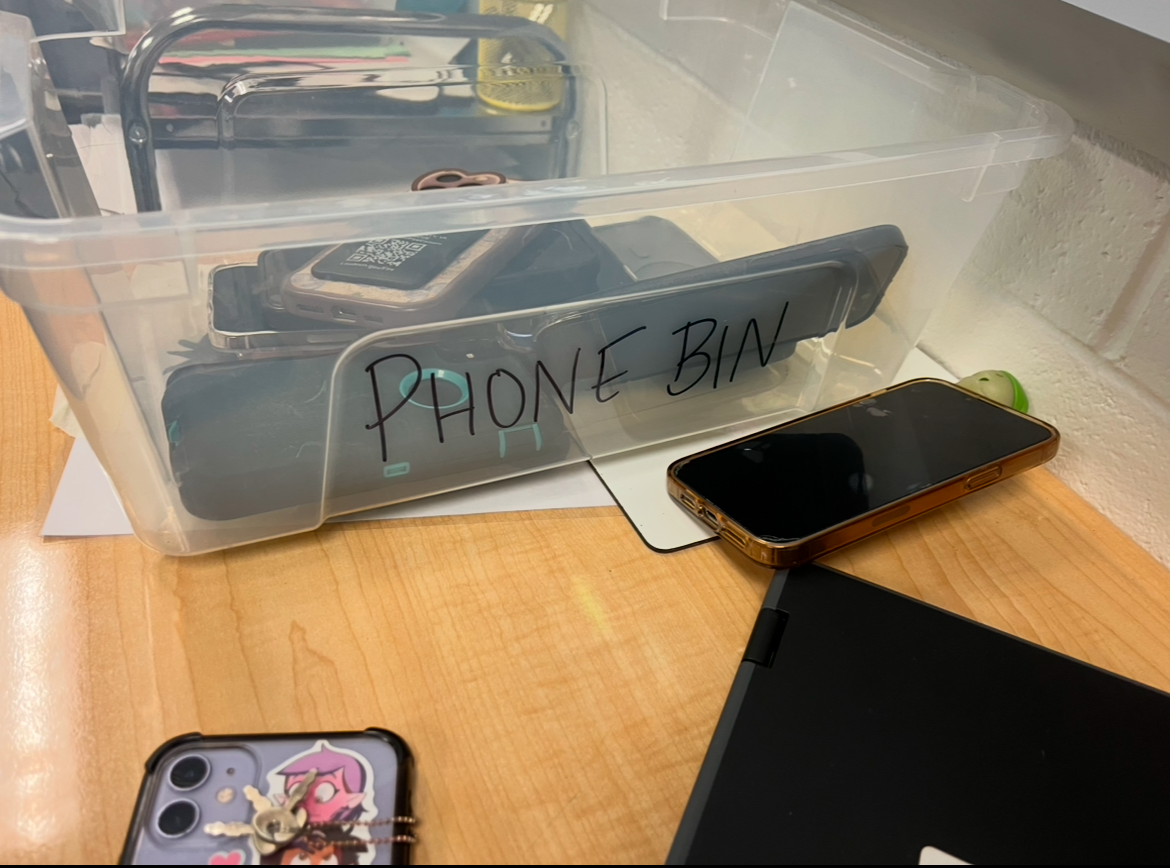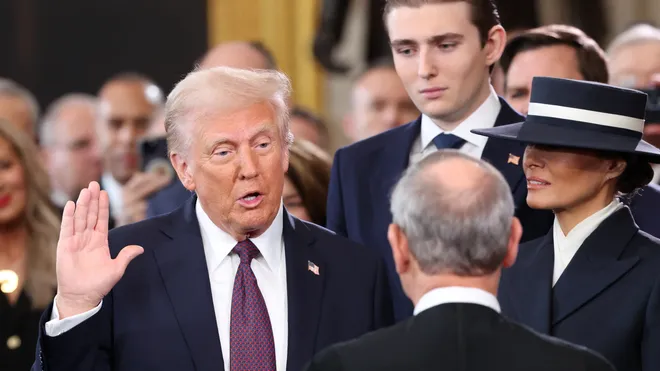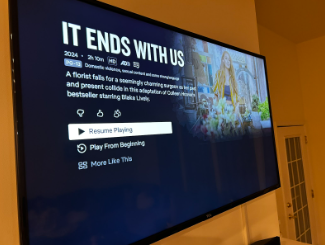Policy 8655 was introduced earlier this year and changed how phones are used in the classroom. A semester later, views on this policy vary throughout the school.
Policy 8655 was passed with a unanimous vote from the Loudoun County School Board and implemented different restrictions for personal device usage from students. Although some teachers’ views of it were a little negative in the beginning, the results of this policy are satisfying teachers and administrators. Many say that some students were paying more attention to their phones than the lesson. Teachers have noticed that students get fewer assignments done if they have access to their phones during class, so a policy restricting personal device usage made by the Loudoun County School Board was long overdue.
“Students were not paying attention to anything but their phones. They were not engaged in lessons. Something needed to happen to get them to put their phones down,” teacher Jodi Grande said. “I’ve seen so many more students talking to each other and being more productive in class.”
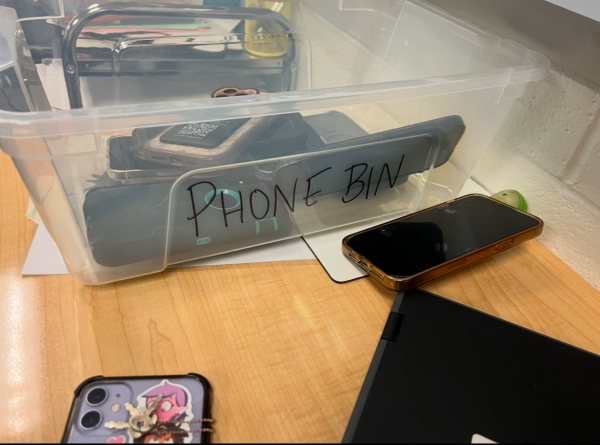 A “Phone Bin” with various students phones Feb. 10, 2025 in ASL teacher Diana Castro’s classroom # 1210 in JCHS. Before class, students are required to turn phones in to adhere to Policy 8655. (Bailey Henderson)
A “Phone Bin” with various students phones Feb. 10, 2025 in ASL teacher Diana Castro’s classroom # 1210 in JCHS. Before class, students are required to turn phones in to adhere to Policy 8655. (Bailey Henderson)
Even if the teachers have high hopes about the policy, there is rebellion among students. Sometimes a student will hide their phones in their backpacks instead of depositing them in front of the class. However, if a student is caught with their phone they will receive a referral. For this reason, students rarely use their phones during class.
“Although students do not always adhere to the rule and lie about having their phone, students know that their phones should be away so I have not seen phones used in class as much as before,” math teacher Jessica Hiemstra said. “I think this is because the students now know there is a consequence if they use their phone at an unauthorized time.”
Some teachers had a more mixed response towards the phone policy. Some felt that the policy was wasting time and some had negative thoughts on how it was going to affect classes. Others thought there might be too much pushback from parents and students for the policy to work. English teacher Lindsey Gries thought of the phone policy negatively before seeing the results without interference from students and parents.
“I was reluctant about student and parent resistance. I expected that it would not go over well. Students have been infinitely more engaged and social as a result of the new policy. It has been a joy to see them blossom,” Gries said. “About half of students submit their phones, but 90% of students keep their phones away during class time. I think this is because students want to be respectful but do not want to relinquish their phones.”
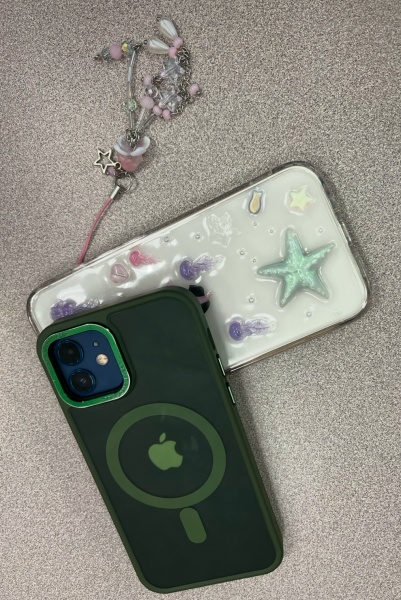 A pile of phones Feb. 10, 2025 in the JCHS cafeteria. Students are allowed to use phones during lunchtime and hallway transitions. (Bailey Henderson)
A pile of phones Feb. 10, 2025 in the JCHS cafeteria. Students are allowed to use phones during lunchtime and hallway transitions. (Bailey Henderson)
Although teachers mostly feel satisfied with the policies’ effects on their classes and students, the students themselves are less than happy. Some students think that the phone policy is unnecessary and unreasonable. Students are also upset about what would happen if there was an emergency, as phones are meant to be left in the classroom as students evacuate. Students dislike not being able to use their phones during study hall even after they have finished their assignments.
“I think the phone policy is ridiculous, I feel like you should have your phone and if you take it out then you get it taken away,” sophomore Cricket Pylant said. “There are definitely teachers that feel the same way…, but there are also teachers that think it’s amazing.”
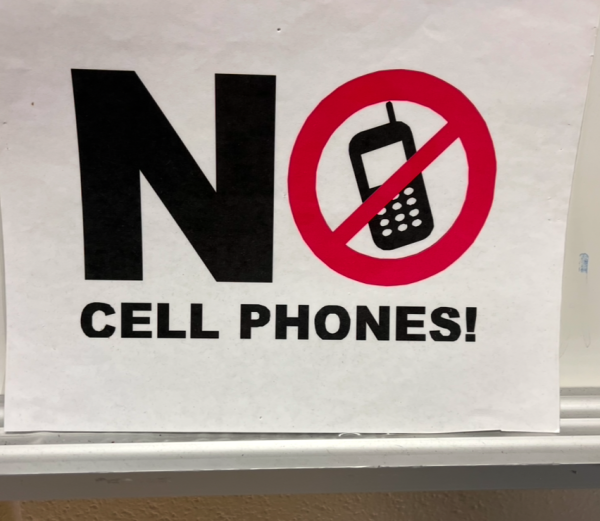 No Cell Phones! Sign Feb. 10, 2025 in ASL teacher Diana Castro’s classroom # 1210 in JCHS. Reminders are posted around the classroom to remind students to turn their phones in at the front of the class.
No Cell Phones! Sign Feb. 10, 2025 in ASL teacher Diana Castro’s classroom # 1210 in JCHS. Reminders are posted around the classroom to remind students to turn their phones in at the front of the class.
Some students think the policy is too harsh and that they should be able to have their phones on their person instead of in front of the class in a box. Others argue that student’s phones are their personal property and shouldn’t have to be turned over to teachers.
“I think that there are some circumstances that require a student to keep their phones. What if a student has to text their parents about something important and doesn’t want to announce it to the rest of the class?” sophomore Akira Valdes said. “Your phone is your property so you shouldnt have to hand it over anyways. “
Overall, teachers are satisfied with the change that came with Policy 8655 and are happy with the increased attention students are giving to lessons and assignments and decreased attention on their phones. Students think that even though the policy is harsh, it is true that the added attention to classes is a positive change made to the learning environment.
“Students are more focused during class time; it does take some management on the teacher’s part to make it work,” musical theater teacher Nicki Shepherd said, “but I have seen stronger classroom participation since the implementation of the phone policy.”


